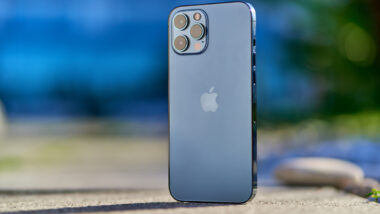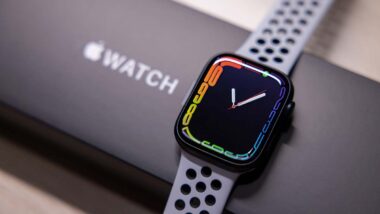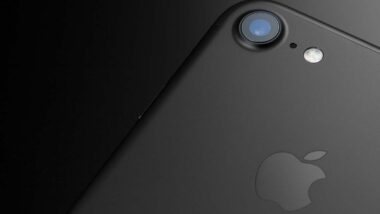Top Class Actions’s website and social media posts use affiliate links. If you make a purchase using such links, we may receive a commission, but it will not result in any additional charges to you. Please review our Affiliate Link Disclosure for more information.

Plaintiffs Thomas Davidson, Todd Cleary and Jun Bai filed the iPhone class action lawsuit last week in California federal court.
They allege Apple is aware of the design defect but refuses to repair consumers’ affected iPhones without charge.
The plaintiffs assert that they would not have purchased the iPhones, or would have paid substantially less for them, if they had known the touchscreen defect could render their smartphones useless.
Apple’s iPhone devices are functional only by use of the touchscreen. A user touches the screen directly to interact with the device instead of using a keyboard or number pad.
Using the iPhone’s touchscreen, a person can send text messages, take pictures or videos, browse the internet, read and send emails, play music, and use a variety of apps.
“Unbeknownst to consumers, the iPhones suffer from a material design defect that causes the touchscreen to become unresponsive to users’ touch inputs and thus all of the functions [listed above] become unusable,” the Apple iPhone class action lawsuit alleges.
This touchscreen defect is caused by a defective component located in the iPhones’ motherboard (or “logic board”), according to the iPhone touchscreen class action lawsuit.
The logic board reportedly contains two chips that allow a person’s touches to interact and control the iPhone software, giving the user the ability to send texts, use apps, and enjoy other aspects of the iPhone’s functionality.
However, the chips are not adequately secured to the logic board and are prone to failure, even with a normal amount of wear and tear, the Apple class action lawsuit alleges. Numerous iPhone users have reportedly complained about the iPhone 6 touchscreen defect.
According to the Apple class action lawsuit, Cleary purchased an iPhone 6 Plus in September 2014, Davidson purchased an iPhone 6 in December 2014, and Bai purchased an iPhone 6 Plus in January 2015. Each of the plaintiffs alleges their iPhone became responsive and Apple refused to fix the issue free of charge.
The plaintiffs claim they were offered replacement iPhones for more than $300 each. They declined the offer.
With the help of an Apple representative, Bai reportedly reinstalled the iPhone software, but he says his phone is unresponsive more than 50 percent of the time.
The other two plaintiffs have discontinued the use of their iPhones because of the alleged Apple touchscreen defect.
“Apple failed to adequately research, design, test and/or manufacture the iPhones” before they put the smartphones on the market and provided a one-year warranty on the devices, according to the class action lawsuit.
The iPhone 6 touchscreen defect class action lawsuit asserts claims against Apple for violations of California’s consumer fraud statutes, fraud, negligent misrepresentation, breach of implied warranty, unjust enrichment, and violations of the Magnuson-Moss Warranty Act and the Song-Beverly Consumer Warranty Act.
By filing the Apple iPhone class action lawsuit, the plaintiffs seek to represent a nationwide Class of consumers who purchased an iPhone 6 or iPhone 6 Plus.
The plaintiffs are represented by Richard D. McCune, David C. Wright, Joseph G. Sauder, Matthew D. Schelkopf and Joseph B. Kenney of McCune Wright LLP.
The Apple iPhone 6 Touchscreen Defect Class Action Lawsuit is Thomas Davidson, et al. v. Apple Inc., Case No. 5:16-cv-04942, in the U.S. District Court for the Northern District of California.
UPDATE: On March 14, 2017, a class action lawsuit alleging Apple intentionally left a design flaw in its iPhone 6 touchscreens was tossed by a California federal judge for vagueness, but the plaintiffs will be allowed another shot to amend their complaint.
UPDATE 2: On July 25, 2017, a California federal judge trimmed some claims in a class action lawsuit against Apple Inc. over an alleged iPhone 6 and iPhone 6 Plus touchscreen defect, but will allow the case to move forward.
UPDATE 3: On May 8, 2018, Apple consumers have been denied Class certification in their iPhone touchscreen defect lawsuit after a federal judge found that the consumers failed to meet the predominance requirement for certification.
ATTORNEY ADVERTISING
Top Class Actions is a Proud Member of the American Bar Association
LEGAL INFORMATION IS NOT LEGAL ADVICE
Top Class Actions Legal Statement
©2008 – 2024 Top Class Actions® LLC
Various Trademarks held by their respective owners
This website is not intended for viewing or usage by European Union citizens.















149 thoughts onApple Class Action Lawsuit Alleges iPhone 6 Touchscreen Defect
After paying 1,000$ cash at Apple for these phone-problems constantly-
Along with Apple slowing the phone 6sPlus -trying to force me to buy a new one-..Should be criminal
I have a iPhone 6s Plus and my speaker is almost gone. It doesn’t ring at times and texts sound garbled. My iPhone is in perfect condition except for the speaker issues, so after paying $1000.00 for a phone please do your part an honor your equipment.
Add me also my screen is black in certain areas
I have 2 iPhone 6 , please add me !